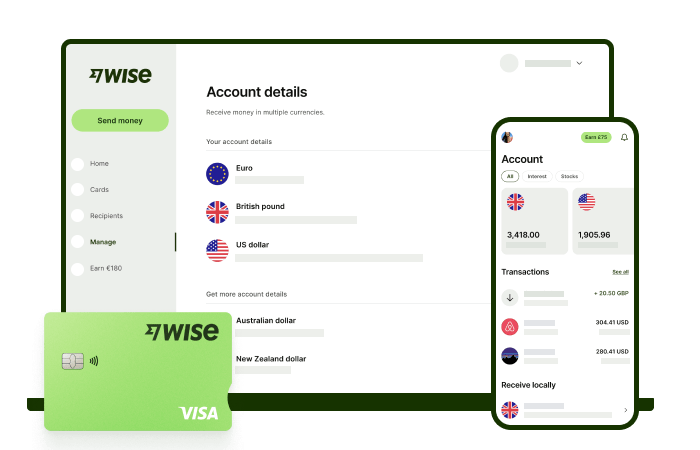Top Laptops for Virtual Assistants in the Philippines: 2025 Specs & Budget Guide
Searching for the best laptop for a virtual assistants? Our guide covers top specs, brands, and budget options to boost your WFH productivity.

The Department of Trade and Industry (DTI) regulates many business functions in the Philippines - including registration of business names. You need to complete the DTI online registration process1 if you work as a freelancer but use a business name to issue invoices, advertise your services and so on.
It used to be possible to complete DTI registration in person - but now you’ll normally need to do your DTI registration online, which is usually much quicker and easier. This guide walks you through what to do.
| Table of contents |
|---|
As you may already know, the DTI meaning in the Philippines is the Department of Trade and Industry - very important if you’re a freelancer with a business.
By registering your business name with the DTI you can ensure nobody else can take the name, protecting your brand. Registration lasts for 5 years, and can be arranged to protect your business name locally, regionally or nationally depending on your business needs2.
Once you’ve completed DTI business registration you will receive a Certificate of Business Name Registration (CBNR). This guide walks through the DTI registration requirements, how to register business in DTI and what you must pay.
One quick note: If you’re a foreigner in the Philippines, the online name registration process may not be available for you. While you can start your application online you will normally be asked to provide supporting documents in person at a DTI office - extra fees may also apply in this case. If you’re not a Filipino, check all the details before you make your DTI registration application.
DTI requirements state that freelancers registering their services as a business must register their name. This means that you need to complete DTI registration if you ever use a business name to advertise, on receipts or invoices, on business agreements or contracts, or even just in a sign outside of your place of work.
It’s helpful to note that registering your business name is not the only requirement if you’re going to be working as a freelancer. You may also need to get a business licence or permit, and you’ll need to register for various taxes - too. Make sure you know the full details for your specific location and type of work before you start to trade, so you stay on the right side of the law.
To register your business name you must first check the name is allowable and not already being used by another company. Other requirements for your name include3:
You’ll need to complete a registration form online which will check if your name is available and follows all the rules. Your business name will be made up of a dominant name - which can’t be a descriptor of the service you offer, and then a specific business descriptor. The system will automatically suggest names based on the information you enter, to make the process simple.
The cost of registering your business with DTI depends on the territorial scope you choose. In this sense, territorial scope is taken to mean the area in which your business can locate physical premises like offices and branches. Here’s a look at the DTI registration fee based on different territorial scopes:
| Territorial scope | Name registration fee |
|---|---|
| Barangay | 200 PHP |
| City or municipality | 500 PHP |
| Regional | 1,000 PHP |
| National | 2,000 PHP |
Other fees may also apply:
| Fee type | DTI registration fee |
|---|---|
| Documentary Stamp Tax | 30 PHP |
| Late filing fee | Additional 50% of application fee |
You can pay your DTI registration fees using GCash, PayMaya or a card. You may also pay over-the-counter at select locations.
As we've seen, most people can register their business name easily using the DTIs online tools. The key exception here is that this may not be possible if you’re a foreigner in the Philippines as additional documents may be required to confirm your eligibility.
Assuming you can register your business with DTI online, you’ll take the following steps:
You can now download your Certificate of Business Name Registration and start to trade.

Did you know that over 76%* of Filipinos cite low and transparent fees as an important factor when receiving money from abroad? With Wise, that's exactly what you're getting - all you need to get started is to sign up for a free Wise account, and you'll be able to manage your money with just a few taps of your phone.
You'll have access to 8+ local account details for major currencies including PHP, USD, GBP, AUD, and more, allowing you to receive money directly, in a cheap and convenient manner. After getting your money, you can easily convert it to 40+ currencies, with low fees, and the mid-market rate - also known as the rate you see on Google. This includes exchanging to PHP with a one-time conversion fee from 0.57% that's shown upfront, and no markups or additional fees.
Get paid and move your funds to your local bank account in PHP in a cheap and convenient manner with Wise to stretch every peso.
*Disclaimer: The percentage figure mentioned above is based on an internal survey conducted by Wise in April, 2024
✍️ Sign up for a free account now
Sources:
*Please see terms of use and product availability for your region or visit Wise fees and pricing for the most up to date pricing and fee information.
This publication is provided for general information purposes and does not constitute legal, tax or other professional advice from Wise Payments Limited or its subsidiaries and its affiliates, and it is not intended as a substitute for obtaining advice from a financial advisor or any other professional.
We make no representations, warranties or guarantees, whether expressed or implied, that the content in the publication is accurate, complete or up to date.

Searching for the best laptop for a virtual assistants? Our guide covers top specs, brands, and budget options to boost your WFH productivity.

Ready for a non-voice WFH job? This guide covers roles (with salaries!), essential skills, where to find legitimate postings, and how to get paid.

Explore the types of virtual assistant work. Find your niche, from social media to data entry, and learn how to manage client payments easily.

Your guide to landing direct client virtual assistant jobs from the Philippines. Learn where to find clients, build your portfolio, and get paid easily.

Looking for an HMO for freelancers in the Philippines? Compare the best prepaid health card and plans to see how to avail coverage for your needs.

Find medical coder work from home jobs in the Philippines. Our guide covers the training, certification, and tips you need to land a remote medical coder role.